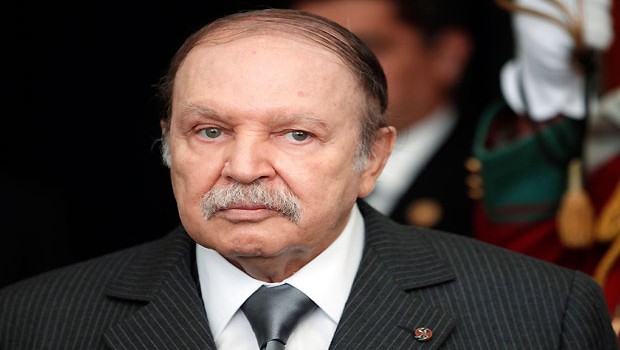President Abdelaziz Bouteflika’s third term in office is now drawing to a close. The president—may God grant him health—has been practically incapacitated by a chronic illness, and will barely make it to the end of his term in office. Some could even argue that the conditions for Article 88 of the Algerian constitution have been met. In this case, the Constitutional Council, in coordination with the parliament, should announce that the office of the presidency is vacant and call for presidential elections to take place as soon as possible. Therefore this authoritarian regime has not just trampled on the constitution, but some of the president’s allies—from political parties to civil institutions—are also now calling on him to stand for a fourth term in office.
Are they doing this for the sake of Algeria, under the pretext that President Bouteflika has managed to restore national stability by eliminating terrorism and securing national reconciliation, restoring Algeria’s international prestige? Or have the beneficiaries of this rentier system raised the slogan of a ‘fourth term’ in order to protect their illegal privileges?
In the post-independence era, Abdelaziz Bouteflika was part of the Oujda Group that forcibly took power and which has held the foreign affairs portfolio since independence. It kept hold of this post during the era of president Houari Boumediene. Following his death, Bouteflika felt that he was his legitimate heir, but the Algerian intelligence services led by the late Kasdi Merbah brought someone else to power. As a result of this, Bouteflika entered his lost period which lasted for twenty years (1979-1999).
The military brought Bouteflika back to the political arena, bringing him to power in 1999 in a cartoonish manner based on a superficial election.
Bouteflika’s return to power was a source of hope, with the Algerian people viewing him as a mujahid and a statesman with important experience in international relations, based on his two-decade marginalization and wandering. However he quickly disappointed the Algerians hoping to see the construction of a democratic state, as he sought to centralize all authority in his hands, saying in effect that he and the state were one. In this context, he moved to close down the political arena by restricting the activities of political parties and banning the formation of new ones. He also moved to muzzle the media. As for civil society, Bouteflika turned this into an extension of his authority by stifling independent associations while providing support to those affiliated with him.
The Bouteflika era is characterized by rise of the totalitarian regime which is reflected in his quest to stay in power for life. This is why he repealed Article 74 of the constitution, which limited presidential terms to two terms in office and no more than 10 years in total, thereby attacking the basis of democracy and the transition of power. Bouteflika repealed the post of prime minister, while he also targeted the separation of powers. This led to the complete disappearance of opposition viewpoints, which is something that is necessary for balanced politics. Herd behavior and a cult of personality replaced critical thinking, and so nothing happened outside of the president’s will. During the Bouteflika era, relations between the state and its citizens was based on blind obedience and loyalty to the rentier state, rather than being based on a true “social contract” that could be torn up in the public interest.
One of the results of this totalitarian rule was the rise of the phenomenon of official impunity. This opened the way to political corruption and the looting of public funds. Bribery became a common thing in major public contracts. One of the repercussions of this was to allow dirty money into the political arena, with the general public thereby losing trust in political parties. As a result of this, politics became increasingly viewed as something cheap and sleazy.
In conclusion, despite the abundance of funds resulting from this rentier economy, President Bouteflika has been unable to achieve a comprehensive breakthrough in terms of Algerian growth and development, securing pride and dignity for the people. Despite the fact that he spent vast sums of money on huge developmental projects over his three presidential terms in office, the lack of oversight and checks and balances ensured that much of these funds went into the pockets of the regime’s supporters. Meanwhile, the absence of political and economic freedom—and these are two things which must come together—halted development. Therefore, a fourth term in office, should this happen, would only serve to further weaken comprehensive development, which is vital to secure the aspirations of the Algerian people.
The counterpart to this article can be read here.

Trackbacks/Pingbacks